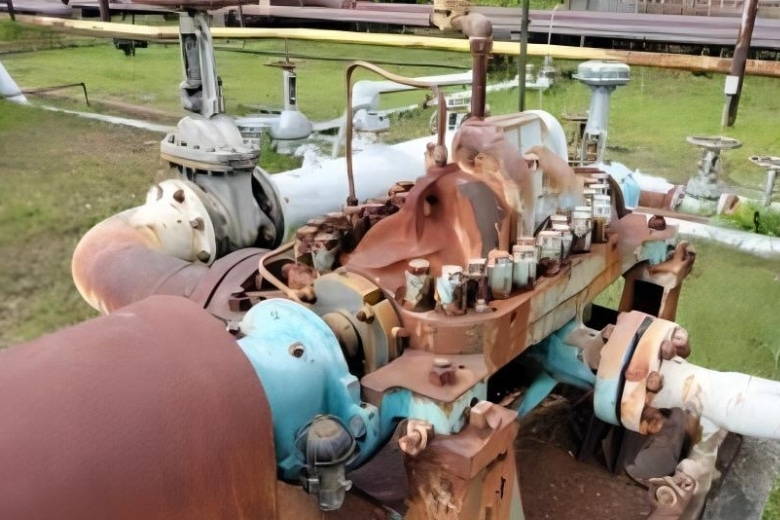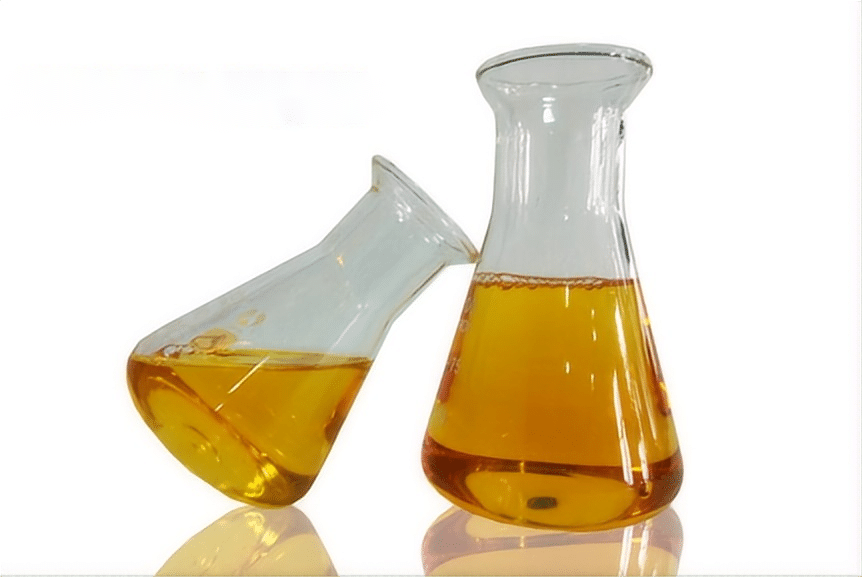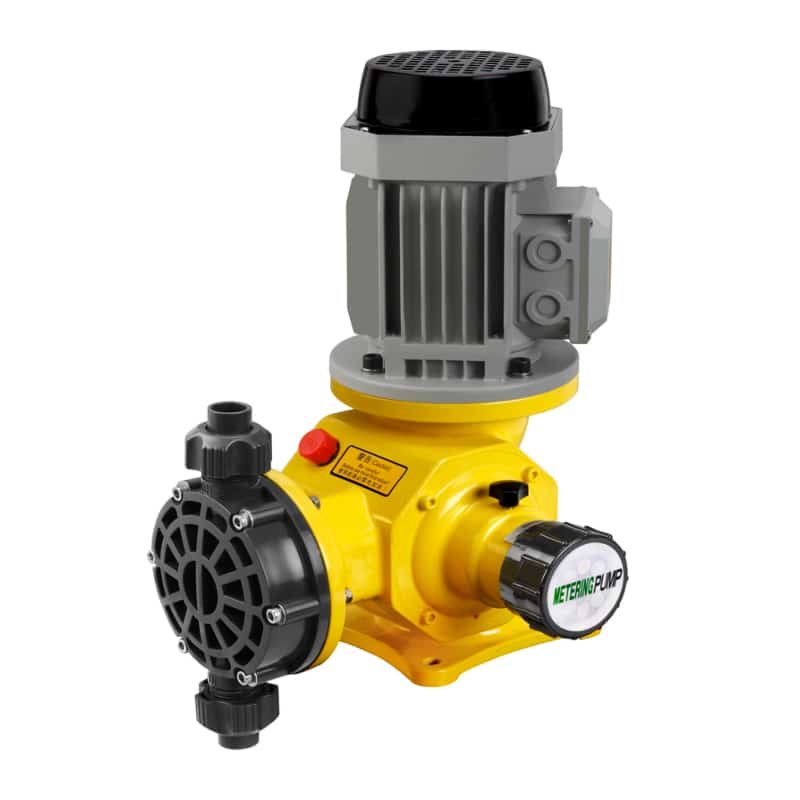Aluminum Corrosion Inhibitor for Pumps

Aluminum corrosion inhibitors are chemicals or formulations used to protect aluminum and its alloys from corrosion. Aluminum is susceptible to corrosion in wet environments and corrosive media, especially in the presence of electrolytes such as salt water. The role of aluminum corrosion inhibitors in pumps is not only to protect the aluminum material from corrosion but also to greatly improve the overall reliability and economic efficiency of the pump.
Aluminum Corrosive Inhibitor Works In Pumps
In pump systems, these aluminum corrosion inhibitors are usually added to the flowing fluid as additives. Aluminum corrosion inhibitors in pumps mainly involve the formation of a protective layer on the aluminum surface to prevent the attack of corrosive media on the aluminum.

Dissolution and dispersion: Corrosion inhibitors dissolve in the liquid and flow with the liquid throughout the pump system.
Adsorption and protective film formation: Corrosion inhibitor molecules are adsorbed onto the inner surface of aluminum pump components, forming a protective film. This film effectively prevents corrosive media (e.g. ions in water, acids, or alkalis) from coming into direct contact with the aluminum surface.
Continuous protection: Due to the dynamic flow of liquids in the pump system, a protective film on the surface exists and is constantly renewed, ensuring that the aluminum pump components are always protected.
Is there a corrosive agent in the pump?
Corrosion can indeed exist in a pump system, which usually depends on the media handled by the pump, operating conditions, material selection, and maintenance.
Types of Corrosion
Uniform Corrosion
The entire aluminum surface is uniformly affected by corrosive media (e.g. acidic or alkaline solutions). The surface thins and loses its luster.
Pitting Corrosion
Localized chemical or electrochemical inhomogeneities result in small holes or pitting corrosion on the surface. The appearance of tiny pits or holes that are deeper than the surface area.
Crevice Corrosion
In crevices or joints, the corrosive medium is trapped, creating a localized concentration difference. The material at the crevice is rapidly corroded.
Galvanic Corrosion
Two dissimilar metals come into contact in an electrolyte, forming an electric pair, and the metal with the lower potential corrodes. Corrosion occurs on the surface of the metal with the lower potential (e.g., aluminum).
stress corrosion cracking
A combination of mechanical stresses and corrosive media results in cracking of the material. Cracks appear on the surface of the material.
Can I use aluminum corrosive inhibitors?
Pumps handle corrosive media (e.g. acidic, alkaline, brine, chemical solvents, etc.) and the use of aluminum corrosion inhibitors can effectively prevent corrosion of aluminum components. Additional protection can be provided in high temperature, high pressure or high flow rate operating environments where the risk of corrosion is high.
Aluminum Corrosion Inhibitor Suitable For Pumps
Organic Inhibitors
Organic inhibitors prevent direct contact of corrosive media with aluminum by adsorbing a protective film on the aluminum surface.
Amines
Characteristics: It has good adsorption and can effectively stop corrosion.
Application: Suitable for a variety of corrosive media, commonly used in coolant and anti-corrosion coat.
BTA And MBT
Characteristics: Particularly effective in preventing corrosion of copper and aluminum, can form a stable protective film on the metal surface.
Application: Widely used in rust inhibitors and coolants, suitable for a variety of operating environments.
Phosphate Inhibitors
Features: Phosphate inhibitors protect metal by forming an insoluble phosphate film on the aluminum surface. Provides good protection in neutral to alkaline environments.
Applications: Suitable for cooling tower systems, boiler water and industrial water treatment to prevent uniform corrosion and pitting.
Molybdate Inhibitors
Molybdate-based inhibitors prevent corrosion by forming a stable molybdate film. Commonly used in cooling water systems, especially suitable for high temperature and high pressure pump systems.
Silicate Inhibitors
Silicate-based inhibitors prevent corrosion by forming a protective layer on the aluminum surface. It has good environmental performance and is suitable for a wide range of operating environments.
Applications: Commonly used in detergents and antifreeze, suitable for household and industrial use.
Pumps for Aluminum Corrosive Inhibitors
Centrifugal pumps: Commonly used to handle large quantities of liquids, widely used in industry, agriculture, construction and water treatment.
Screw pumps: Suitable for handling high viscosity liquids such as oil, slurries and chemicals.
Diaphragm pumps: Capable of handling highly corrosive, abrasive and high viscosity liquids, widely used in chemical, pharmaceutical and food processing industries. HAOSH HJ-Z mechanical dosing pump is available in a wide range of power-side designs.

Plunger pumps: Plunger pumps for high pressure delivery systems such as high pressure cleaning, water injection and high pressure liquid transfer, widely used in industrial cleaning and oil extraction.
Peristaltic pumps: Peristaltic pumps are suitable for handling sensitive, highly viscous or corrosive liquids and are widely used in the pharmaceutical, food and chemical industries.
Equipment for Conveying Aluminum Corrosive Inhibitors
Delivering aluminum corrosion inhibitors in a pump system usually requires a dedicated dosing system, which typically includes tanks, agitators, metering pumps, and piping.
Steps for Injecting Aluminum Corrosion Inhibitors
Ensure that the tanks, agitators, metering pumps and piping systems are working properly and are free of leaks and malfunctions. Dissolve or dilute the aluminum corrosion inhibitor to a working concentration, depending on the concentration, and pour it into the agitator tank. Start the agitator to ensure that the aluminum corrosion inhibitor in the tank is evenly mixed to prevent settling and stratification.
Setting the flow rate: According to the system requirements and the recommended dosage, the calculation should take into account the total water volume of the system and the required inhibitor concentration, set the flow rate of the metering pump and start it up for injecting the aluminum corrosion inhibitor. Adjust the meter at any time according to the monitoring results and system requirements.
Monitor the flow rate: through the flow meter or other monitoring equipment, real-time monitoring of the inhibitor injection volume to ensure stable dosing.
Summary
Regular monitoring and maintenance ensures the effectiveness of the inhibitor, along with the necessary safety measures to ensure a safe operating process. Optimizing aluminum corrosion inhibition strategies will continue to be an important part of facility management and maintenance as industry needs continue to evolve.
HAOSH manufacturer has extensive experience in the water treatment industry and is committed to providing quality services for a wide range of brands. We mainly provide hydraulic dosing pumps, chemical dosing systems, safety valves and submersible agitators, click to contact us for your service.
